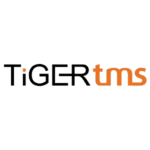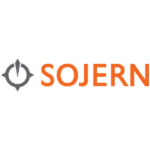 For hotels worldwide, the last year has been marked by countless empty beds and cancelled bookings. The plummet in demand for hotel stays caused by COVID-19 has sent standard revenue management practices into a tailspin. Faced with this unprecedented scenario, hotels can no longer rely on past patterns to forecast demand. They must find entirely new ways to manage revenue. In the first study of its kind, Professor Basak Denizci Guillet and Ms Angela Mai Chi Chu of the School of Hotel and Tourism Management (SHTM) at The Hong Kong Polytechnic University comprehensively evaluate the relative importance of various core processes that feed into revenue management. Their study offers data-driven guidance for hotel executives in the post-pandemic world.
For hotels worldwide, the last year has been marked by countless empty beds and cancelled bookings. The plummet in demand for hotel stays caused by COVID-19 has sent standard revenue management practices into a tailspin. Faced with this unprecedented scenario, hotels can no longer rely on past patterns to forecast demand. They must find entirely new ways to manage revenue. In the first study of its kind, Professor Basak Denizci Guillet and Ms Angela Mai Chi Chu of the School of Hotel and Tourism Management (SHTM) at The Hong Kong Polytechnic University comprehensively evaluate the relative importance of various core processes that feed into revenue management. Their study offers data-driven guidance for hotel executives in the post-pandemic world.
The COVID-19 pandemic has been disastrous for the hospitality and tourism industry. Demand for hotel stays has plunged worldwide, with a huge increase in room cancellations and financial losses, as well as massive uncertainty in the short- and long-term demand for hotel rooms. “As of March 21, 2020, occupancy has decreased by 96% in Italy, 68% in China, 67% in the UK, and 59% in the US compared to 2019,” report the researchers. Crucially, this slump in demand has also disrupted demand-based pricing, which includes the standard practice of setting higher room prices when the expected demand is high or exceeds a hotel’s capacity.
Demand-based pricing is a fundamental element of revenue management (RM), which is a powerful forecasting method used by hotels and many other businesses to maximise revenue. Revenue managers in hotels carefully analyse historical data to predict room demand and availability and make long-term strategic decisions on pricing. Given that RM strategies rely heavily on demand, how can hotels optimise their future pricing when little or no demand exists, such as during the COVID-19 pandemic?
When disaster strikes, it is clearly vital to formulate strategic action plans that minimise disruption and help businesses to recover. Yet there have been few studies of the capacity for RM in times of crisis. Amidst the unprecedented circumstances of COVID-19, this is unknown territory. To meet the urgent need for effective RM strategies in an industry ravaged by the pandemic, the researchers carefully examined the current importance of various RM processes. They sought to determine “how and to what extent RM can be implemented in the hotel industry during low-demand periods, particularly during the COVID-19 crisis”.
To identify the most important elements of RM for hotels facing low and highly uncertain demand, the researchers adopted an established framework for RM in the hospitality industry. This cyclical framework involves seven core RM processes, beginning with business analysis. “Business analysis is the most crucial activity”, say the researchers. Analysing data on business operations enables the hotel to set the right pricing strategy, such as demand-based pricing or discounting.
The key stage of demand modelling and forecasting often relies on historical data, which is a challenge when there are no prior reference points, as in the present crisis. “RM systems learn the trends about 8–15 weeks after there is some demand for them to learn from”, write the authors. Following forecasting in the cyclical RM process is inventory and price optimisation. These steps are optimised through booking controls and channel management. The cycle then returns to business analysis via performance analysis and evaluation. “This is an ongoing process that requires up-to-date information for optimal results”, say the researchers.
By considering the seven core processes one by one, the researchers set out to determine their relative importance to hotels during the pandemic. They also considered eight external factors that influence the RM cycle, ranging from competition to legal factors and employees. To gain up-to-date insights from industry insiders, the researchers chose a qualitative approach – in-depth interviews.
“The participants had to be experienced revenue executives who made daily RM decisions and were involved in developing RM strategies for their hotels”, the authors report. Holding interviews during the pandemic, between January and March 2020, they gathered the opinions of 26 RM executives, consultants and system providers working in hotels across the world, from Hong Kong to Turkey and the US.
During the interviews, the participants were invited to describe how COVID-19 had impacted their hotel RM practices. To systematically guide their responses, the researchers asked about the relevance of the seven core RM processes – business analysis, pricing strategy, demand modelling and forecasting, inventory and price optimisation, setting booking controls, distribution channel management, and performance analysis and evaluation. The interview transcripts were analysed to identify common themes, facilitating the researchers’ “thorough examination of RM implementation in hotels during the pandemic period”.
All seven steps in the RM cycle were mentioned by the RM experts, suggesting that the cycle generally remained relevant after the outbreak of COVID-19. However, the relative importance of these processes had changed as a result of the crisis, due to the uncontrollable impact of COVID-19 on hotel operations. As one interviewee said, “There is very little you can do in crises such as social unrest and the coronavirus crisis; both prevent travel”.
Most of the interviewees emphasised the continued importance of business analysis, pricing, and demand forecasting. However, they found forecasting extremely challenging during the pandemic, due to “the irrelevance of historical data”. Instead, the researchers report, the participants tried to forecast demand using 2003 SARS data or “relied on manual forecasts through the development of ‘what if’ scenarios”. Meanwhile, the lack of any demand meant that the RM executives considered inventory control and segmentation to be largely redundant during the pandemic.
Based on these insightful findings, the researchers were able to offer specific guidance for hotels’ RM strategies amidst crisis. First, hotels should regularly perform business analysis to keep up to speed with the fast-changing environment and to prepare for recovery from the crisis. This is particularly important considering that external factors in the RM framework, such as legal, economic and social–cultural factors, “are much more influential during the COVID-19 crisis and require ongoing business analysis.”
Second, the interviewees all agreed that demand-based pricing is unhelpful during the pandemic, due to the lack of demand. Hotels could instead opt for cost-based pricing strategies, suggest the authors. Third, the challenges surrounding forecasting in these unprecedented times could drive the adoption of “manual forecasts and scenario analysis based on the evaluation of feasible outcomes of the COVID-19 crisis”, suggest the authors.
Based on other opinions flagged as critical during the interviews, the researchers also recommend that hotels focus on marketing strategies as the industry starts to recover, especially those that will reassure customers of hotels’ cleanliness and safety. Relationships with online travel agencies, which have superior digital marketing and data analytics power, may help hotels to recover from the impact of COVID-19. The authors also stress that it would be helpful for revenue leaders to work alongside the hotel’s sales and marketing team. As demand picks up, “cross-departmental collaboration is more essential than ever,” they say.
This is the first study to systematically examine the extent to which the core processes of RM can be implemented during a crisis. Reassuringly, its findings suggest that RM can still be undertaken when demand is low. As the industry begin to recover from the COVID-19 pandemic, hotels should make well-timed, evidence-based decisions about their RM practices. Faced with conceivably permanent changes in consumer behaviour and the uncertain future of the global economy, hotels should continuously monitor business and leisure trends.
“The full breadth of consequences of the COVID-19 crisis in hotel RM will likely manifest gradually”, conclude the authors, “Therefore, the core RM processes should also be examined when the crisis is over”.
About the authors
Denizci Guillet, Basak and Chu, Angela Mai Chi (2021). Managing Hotel Revenue amid the COVID-19 Crisis. International Journal of Contemporary Hospitality Management, Vol. 33 No. 2, pp. 604-627.































